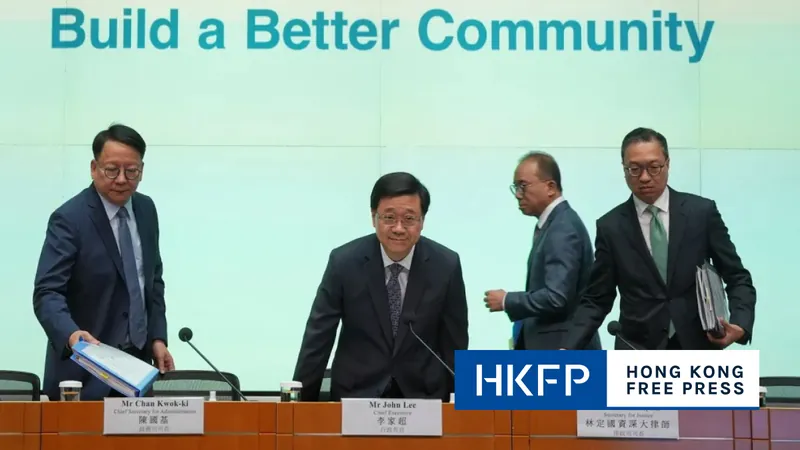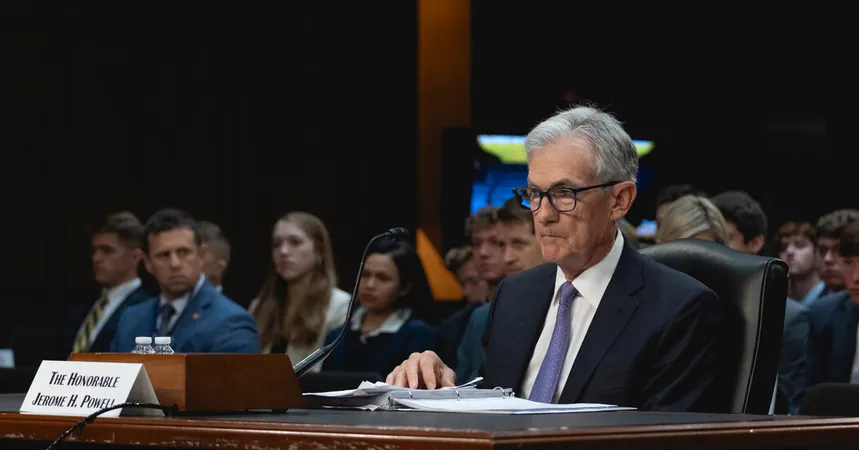
Alarming Salary Surge: Hong Kong Officials Pocket Over HK$177 Million Amid Soaring Budget Deficit
2024-12-12
Author: Ying
In an astonishing development, Hong Kong's government officials are set to receive more than HK$177 million from taxpayers in 2024, coinciding with a dramatic increase in the city's budget deficit, which is now projected to exceed HK$100 billion—a figure that has doubled from earlier forecasts.
Erick Tsang, the Secretary for Constitutional and Mainland Affairs, disclosed in a written response to legislator Regina Ip that politically appointed officials will enjoy a 1.8% pay raise compared to last year. This comes after a two-year salary freeze in 2020 and 2021 during the COVID-19 pandemic, and it marks a staggering 26% increase since 2015.
With a total of 55 politically appointed officials under Chief Executive John Lee, their collective salary bill is set to surpass HK$171 million this year. Notably, Chief Executive John Lee himself takes home HK$469,495 monthly, contributing significantly to the overall figure.
The Principal Officials Accountability System, established in 2002 by Hong Kong's first chief executive, Tung Chee-hwa, transformed the governance landscape by mandating that top officials be politically appointed rather than chosen from a pool of civil servants. As a result, these officials now operate under contracts and are directly accountable to the chief executive.
The salary breakdown reveals that the highest earners include Chief Secretary for Administration Eric Chan (HK$417,330/month), Financial Secretary Paul Chan (HK$403,215/month), and Secretary for Justice Paul Lam (HK$389,580/month). Meanwhile, there are 19 political assistants—typically the lowest-ranking officials—each making HK$131,740 monthly.
Controversially, Paul Tse, a solicitor and pro-establishment lawmaker, raised concerns about the perceived excess of political assistants in light of the government's declining revenue. Tsang defended the necessity of this structure, explaining that these assistants are essential for lobbying, establishing political relationships, and delivering vital analyses.
The alarming rise in salaries occurs amidst a backdrop of financial strain for Hong Kong, where the fiscal shortfall is expected to persist for the third consecutive year. As residents grapple with increased living costs and economic challenges, the juxtaposition of soaring salaries for top officials against a ballooning deficit raises urgent questions about fiscal responsibility and governance priorities.
The discussion surrounding public spending and accountability continues to ignite debate among citizens, with many calling for transparent budgeting and a reevaluation of how taxpayer dollars are allocated. As the city faces these mounting fiscal challenges, the scrutiny of its leaders' compensation is unlikely to abate.



 Brasil (PT)
Brasil (PT)
 Canada (EN)
Canada (EN)
 Chile (ES)
Chile (ES)
 España (ES)
España (ES)
 France (FR)
France (FR)
 Hong Kong (EN)
Hong Kong (EN)
 Italia (IT)
Italia (IT)
 日本 (JA)
日本 (JA)
 Magyarország (HU)
Magyarország (HU)
 Norge (NO)
Norge (NO)
 Polska (PL)
Polska (PL)
 Schweiz (DE)
Schweiz (DE)
 Singapore (EN)
Singapore (EN)
 Sverige (SV)
Sverige (SV)
 Suomi (FI)
Suomi (FI)
 Türkiye (TR)
Türkiye (TR)